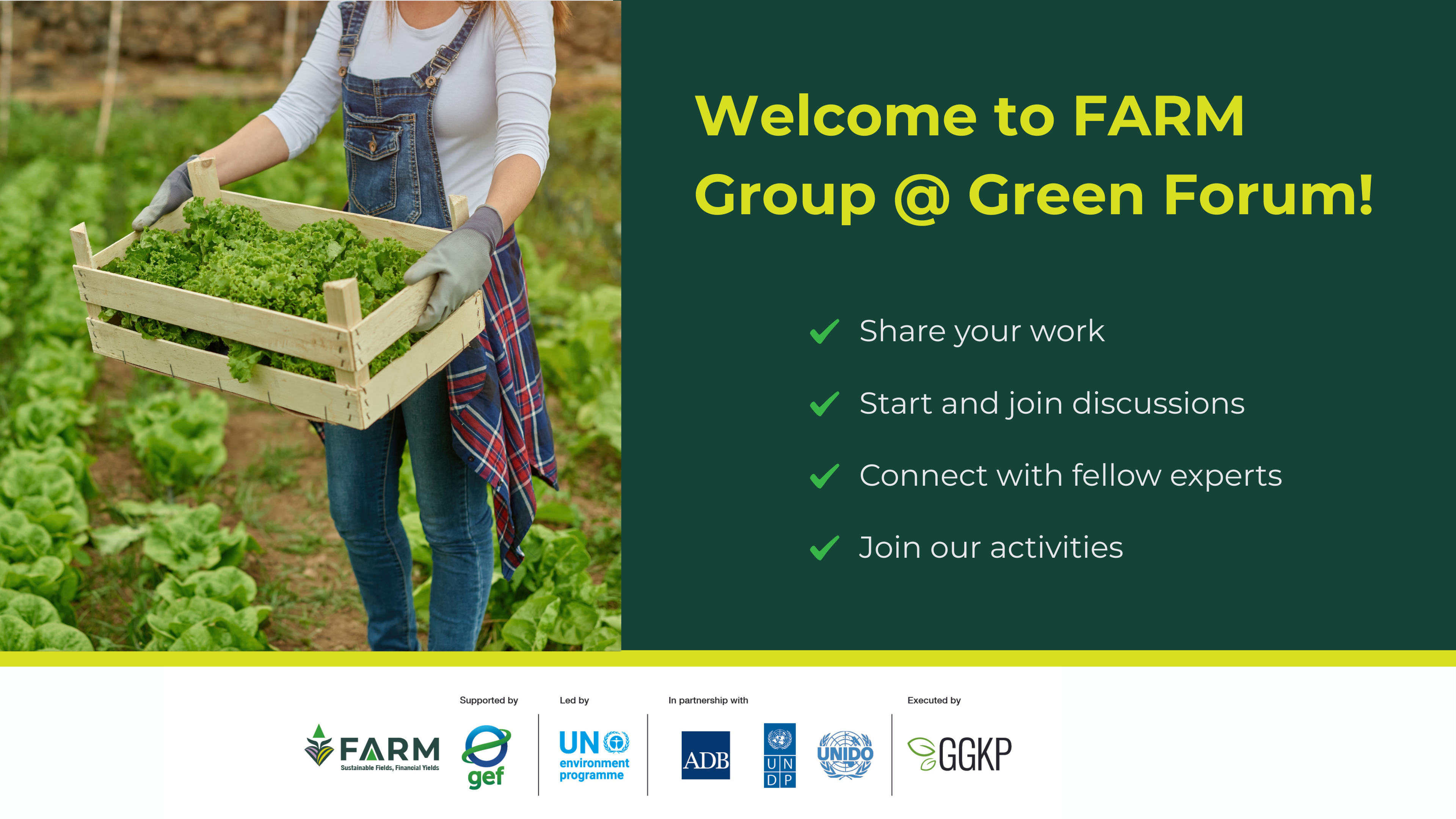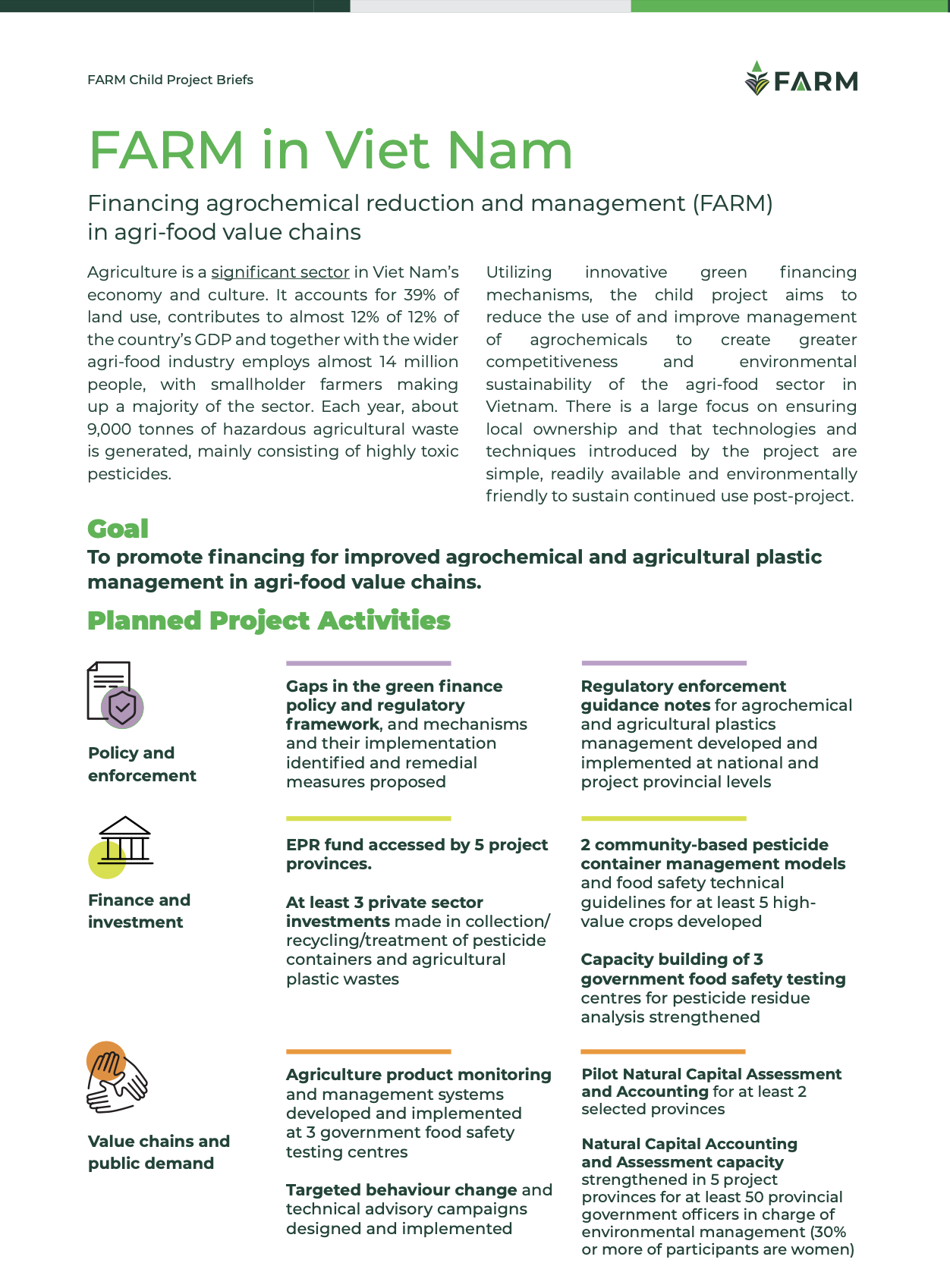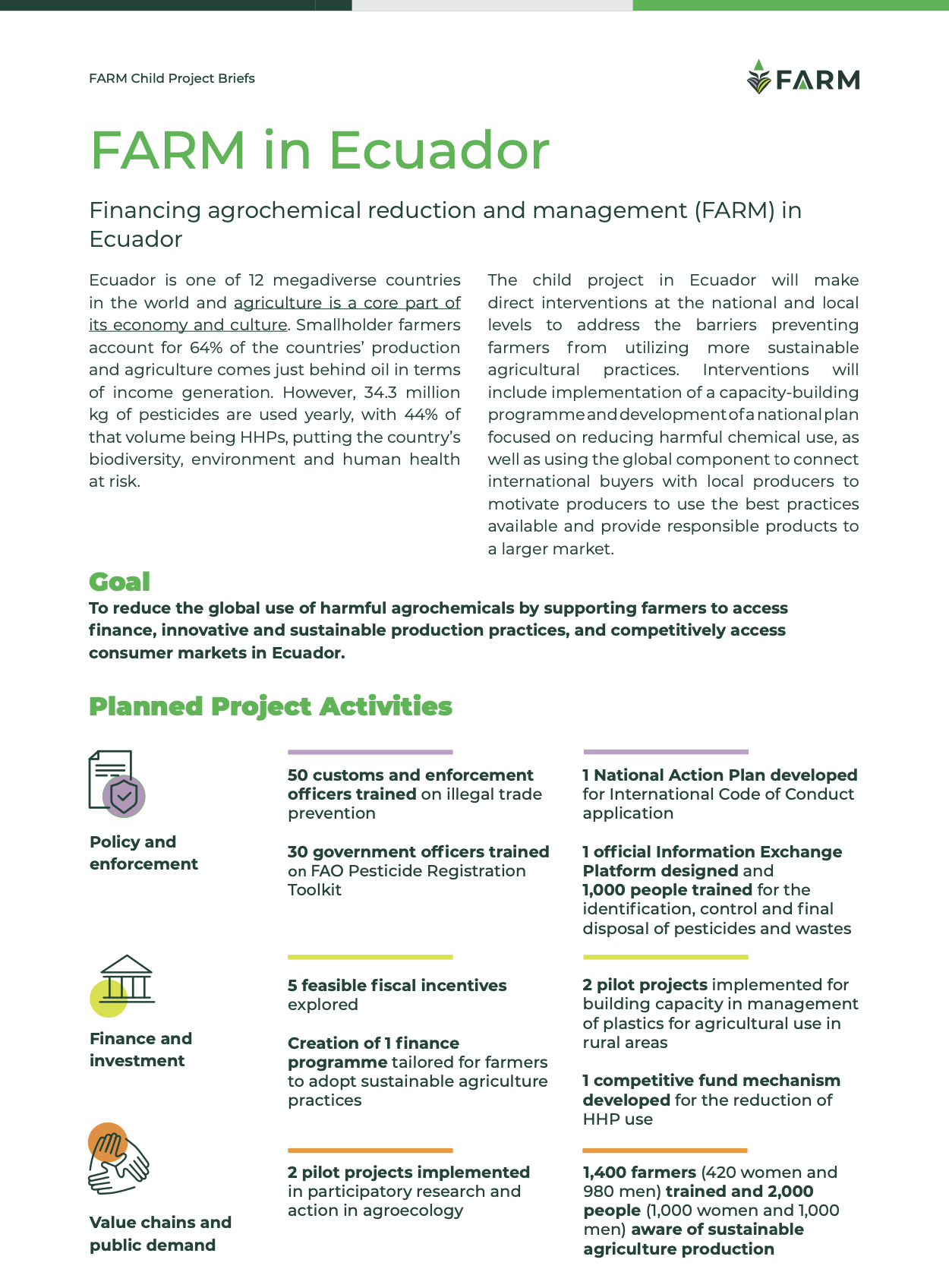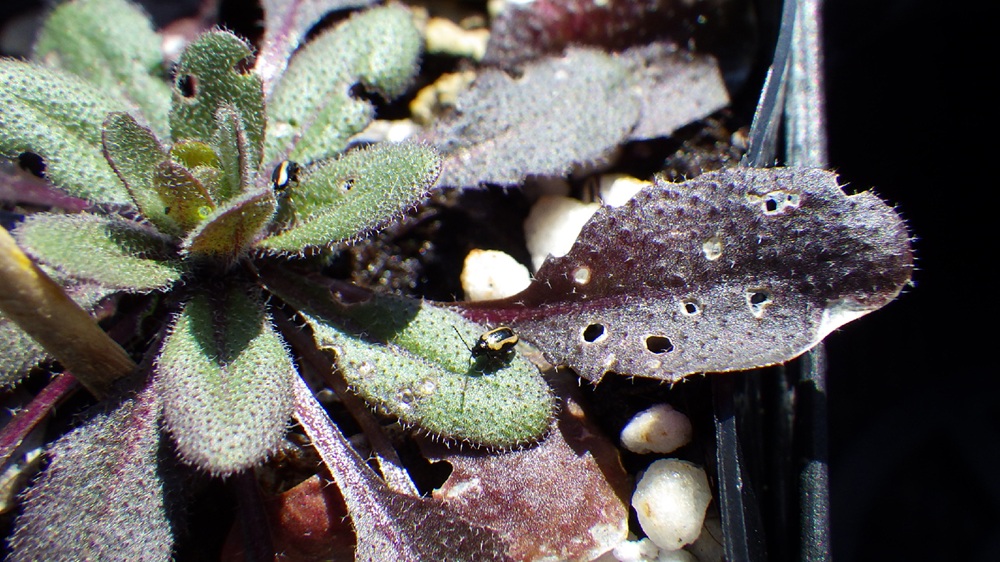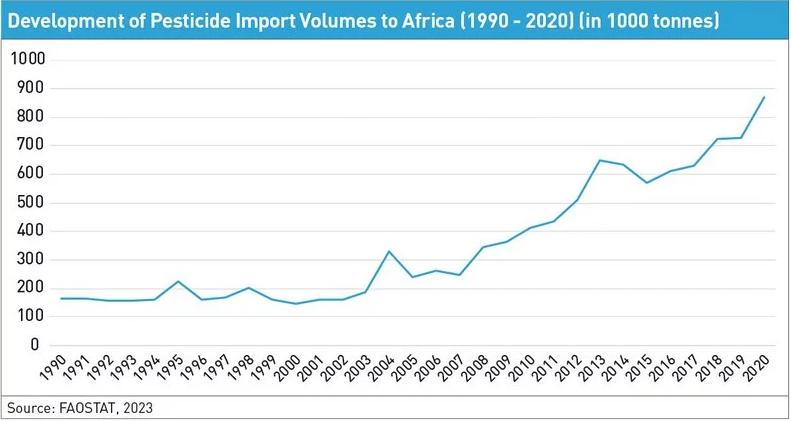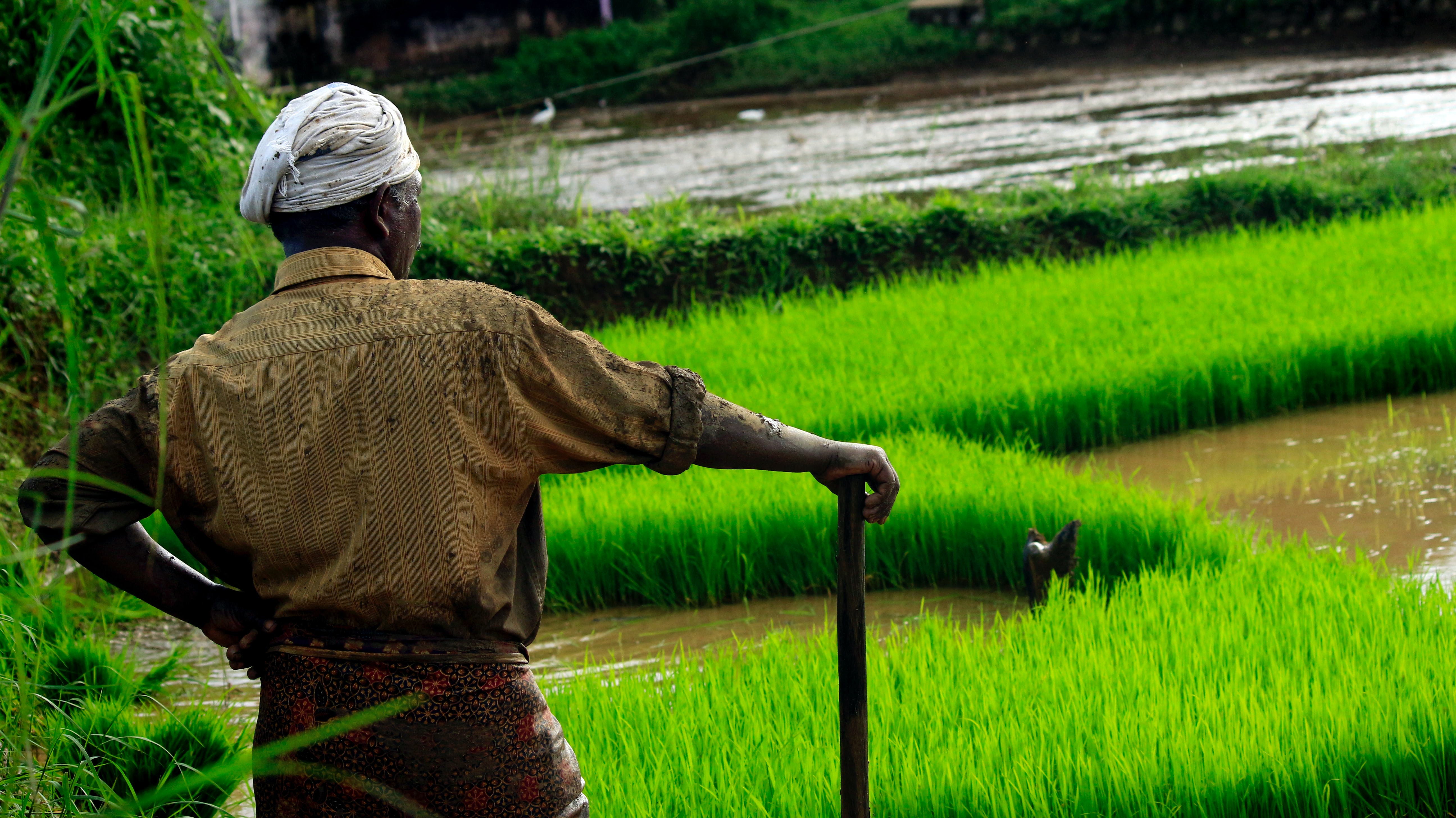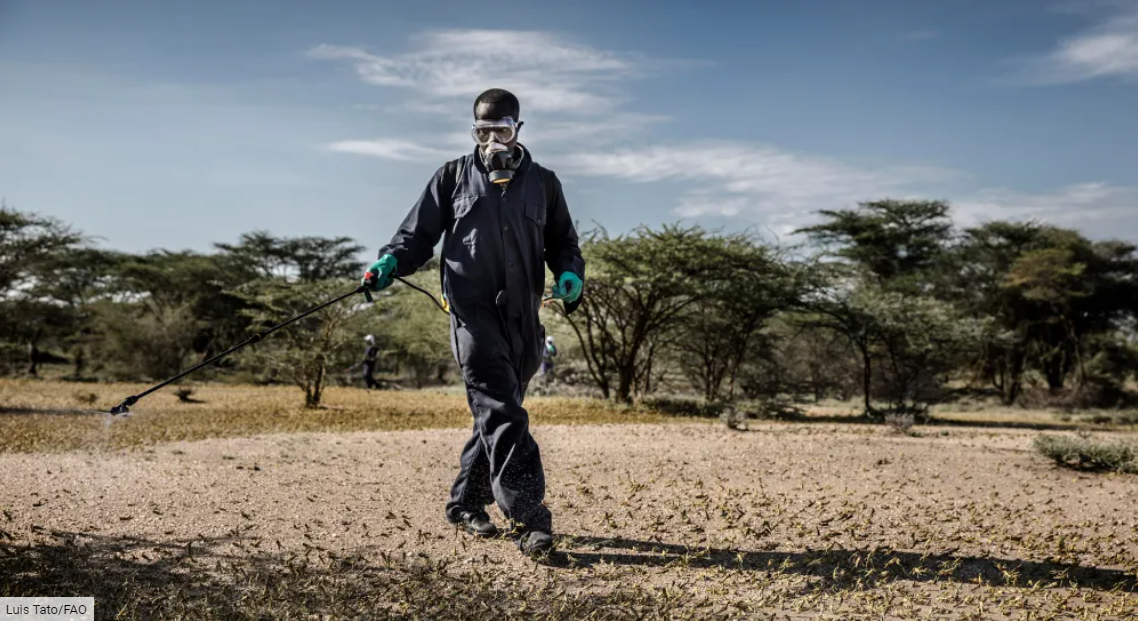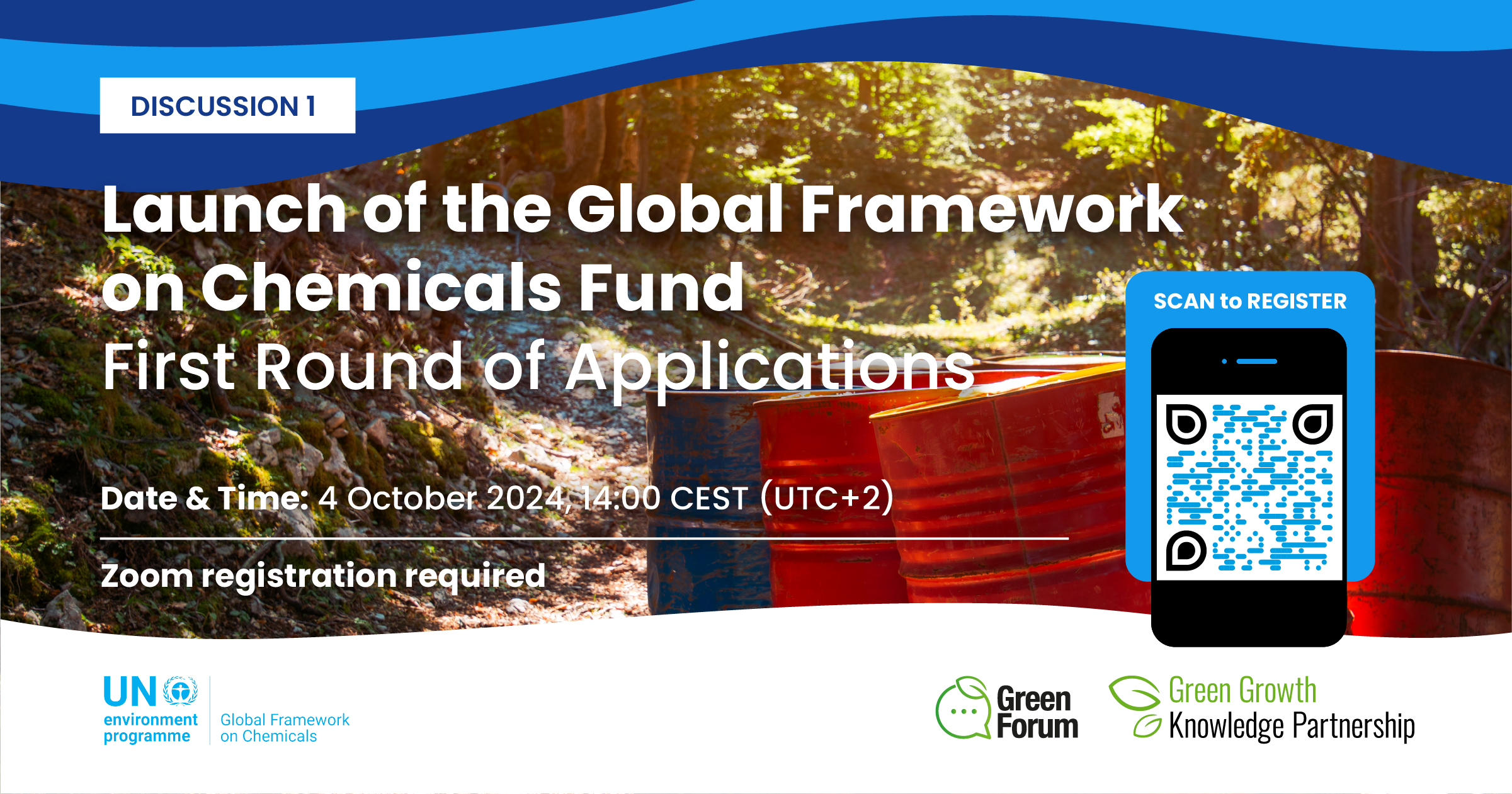FARM
Group
Group content visibilityJoin method
72 members
Access permissions
Group visibilityPublic - All visitors of the platform can see this group
Public - visible to all visitors to the platform.
Open to join - users can join this group without approval.
Upcoming Events
Informative message
No events found.
FARM
Pinned post
8625
Created a Knowledge in FARM
9 months ago
Project documents:
FARM in Viet Nam - CEO Endorsement
Vietnam
Created a Knowledge in FARM
9 months ago
Project documents:
FARM in Ecuador - CEO Endorsement
Ecuador
Created a Post in FARM
10 months ago
Created a Post in FARM
10 months ago
Created a Post in FARM
11 months ago
Created a Post in FARM
11 months ago
Shared an Event in FARM
1 year ago
